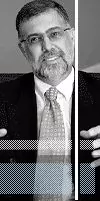Imminent new tax laws geared towards improving SA's revenue collection numbers will give the South African Revenue Service (SARS) significant new investigative and punitive powers.
If you weren't already weary of the taxman, it is now time to "get very scared".
The powers will come into effect with the Tax Administration Bill (TAB), expected to be promulgated in the next four to six weeks, according to Dr Beric Croome, a tax executive at law firm Edward Nathan Sonnenbergs (ENS).
"If taxpayers appear on the radar of SARS for non-compliance or suspicion of non-compliance, they will very quickly find out the added powers that SARS enjoy as a result of the amendments," says Ernie Lai King, also a tax executive at ENS.
Notable new powers provided to SARS under the drafts include:
The right to issue a jeopardy assessment compelling the payment of tax prior to the normal returns due date;
The right to apply to courts for a preservation order to seize the moveable assets of tax defaulter;
The widening of search and seizure powers so that a warrant is not always necessary; and
A jeopardy assessment can be issued to a tax payer when SARS has reasonable suspicion that the collection of tax is in jeopardy.
This would occur where the tax payer has previously failed to submit a tax return or has filed an incorrect tax return.
"SARS can issue a jeopardy assessment in advance of the date in which the return is normally due," says King.
A preservation order "may be made in respect of assets if SARS suspects such assets may be dissipated to frustrate the collection of any tax due", says King.
"The court can authorise a seizure of moveable assets or they can appoint a curator bonis and that will mean the assets will vest in the curator."
This would occur where a tax payer has defaulted on payments.
Under search and Seizure amendments SARS can, in certain circumstance, enter a premises and search and seize without a warrant.
While SARS would initially need to apply for a warrant, Lai King warns that "in carrying out the search, should SARS on reasonable grounds believe that relevant material is not on the premises mentioned in the warrant ... they can simply go onto other premises without a warrant, if they believe evidence is at risk of been destroyed".
The sections that replace a Section 74C enquiry still have no time limit in which SARS will have to wind-up the enquiry and provide findings.
The provisions authorise SARS to hold an enquiry into the affairs of an individual suspected of non -compliance with tax laws.
"It's a very, very harsh enquiry and it's a costly thing to attend because you need good legal representation," says King.
Under the provisions SARS can subpoena an individual for any information required and they can call in any other individual to testify under oath as to the activities of the individual under investigation. But "there is no time limit specified ... they can just keep you on a string".
"SARS from their point of view and in their reality, find people who are really dishonest. SARS argues they must have these very vast powers to combat that," says King.
But "from our point of view, we see people pulled into investigations that shouldn't be and they are subjected to treatment that is not warranted".
Originally published in The Citizen Online, 13 June 2012
The content of this article is intended to provide a general guide to the subject matter. Specialist advice should be sought about your specific circumstances.

